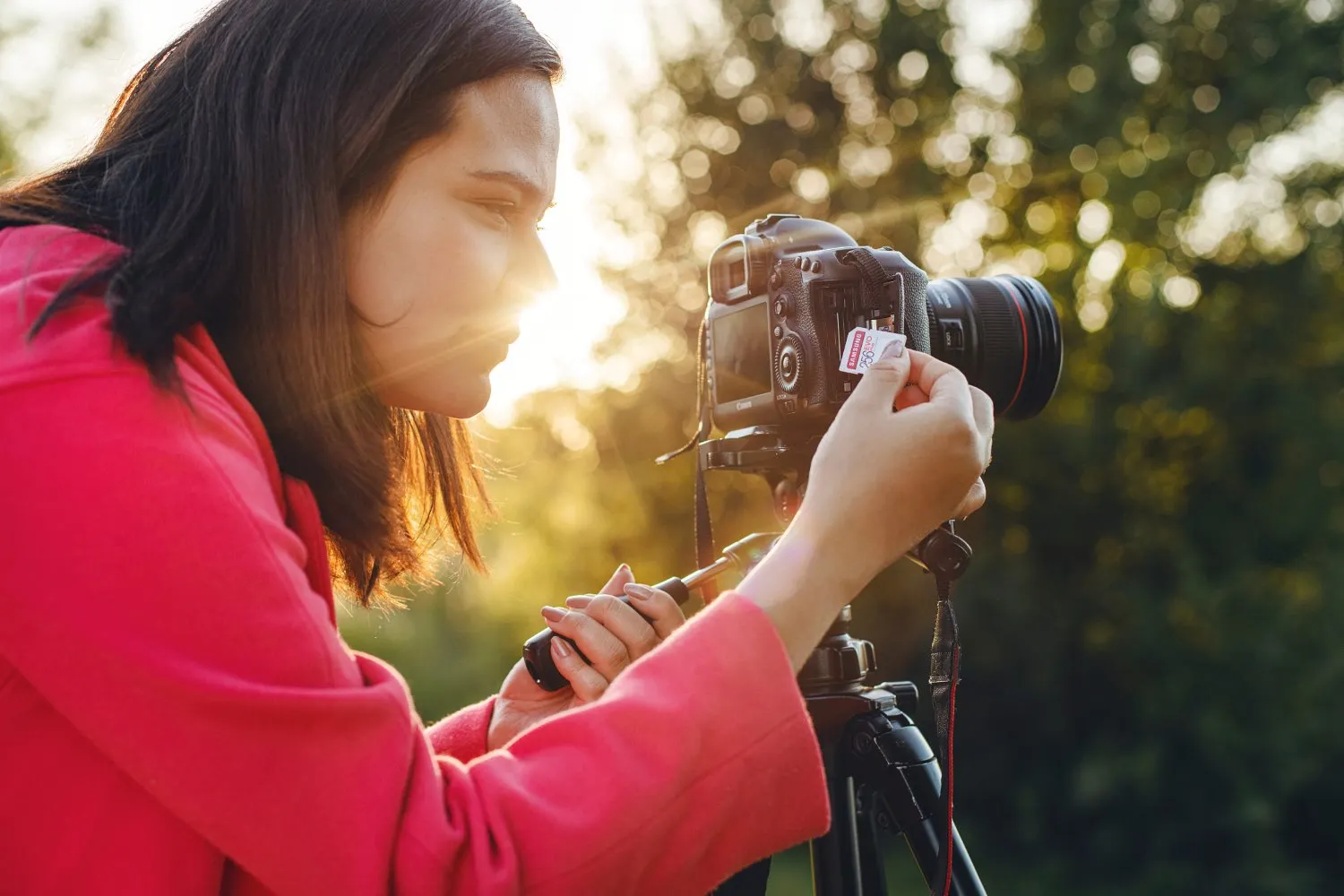Introduction Photography is an art form and a technical skill that anyone can improve with dedication and practice. Whether you’re using a DSLR, mirrorless camera, or even a smartphone, improving your photography skills can enhance your ability to capture stunning images. In this article, we will explore practical and effective ways you can quickly improve your photography skills, no matter your current skill level.
1. Understand the Basics of Exposure
Exposure is one of the most fundamental concepts in photography. It refers to the amount of light that reaches your camera’s sensor, affecting the brightness of your photos. There are three main elements that control exposure:
- Aperture: The size of the opening in your lens, which controls the amount of light and depth of field (how much of the image is in focus).
- Shutter Speed: The length of time the camera’s shutter is open, which affects how motion is captured (fast shutter speeds freeze motion, while slower shutter speeds create motion blur).
- ISO: The sensitivity of your camera’s sensor to light. Higher ISO settings allow you to shoot in low light but can introduce noise.
To quickly improve your skills, familiarize yourself with these three settings and practice adjusting them based on the lighting conditions.
2. Learn to Compose Your Shots
Composition is a crucial element of photography that can take your photos from good to great. Here are a few key composition techniques:
- The Rule of Thirds: Imagine your frame is divided into a 3×3 grid. Place the subject along the grid lines or at the intersections to create more visually appealing and balanced images.
- Leading Lines: Use natural or architectural lines in the environment to lead the viewer’s eye to the subject of the photo.
- Framing: Frame your subject using elements of the scene like doorways, windows, or branches to add depth and context to the image.
- Symmetry and Patterns: Look for symmetrical elements or repeating patterns in your surroundings to create visually striking photographs.
By consciously thinking about composition, you can enhance the visual impact of your photos quickly.
3. Use Natural Light to Your Advantage
Lighting is essential in photography. One of the best ways to improve quickly is to learn how to work with natural light. Here are some tips:
- Golden Hour: Shoot during the golden hour, which occurs shortly after sunrise and before sunset. The light is soft and warm, perfect for flattering portraits and landscapes.
- Avoid Harsh Midday Light: Direct sunlight in the middle of the day can create harsh shadows and highlights. If you must shoot in this light, use a diffuser or shoot in the shade.
- Use Reflectors: Reflectors can bounce light back onto your subject, filling in shadows and providing a softer, more even light.
By paying attention to how light interacts with your subject, you can create more professional-looking images quickly.
4. Experiment with Different Perspective
One of the easiest ways to improve your photography quickly is to change your perspective. Here’s how:
- Shoot from Low or High Angles: Get down to your subject’s level or try shooting from above to create dynamic compositions and unique shots.
- Try Close-Up Photography: Explore macro photography by getting closer to your subject. This technique is perfect for capturing intricate details of everyday objects or nature.
- Use Reflections and Shadows: Look for interesting reflections in water, glass, or shiny surfaces, and use shadows creatively to add depth and interest to your images.
Experimenting with angles and perspectives can dramatically change the way you capture your environment and subjects.
5. Master Focus and Depth of Field
Controlling focus and depth of field (DOF) can make a significant difference in the sharpness and mood of your images. Here are some tips to improve in this area:
- Focus on Your Subject: Ensure that the subject of your photo is in sharp focus. Use your camera’s autofocus system or manually adjust the focus point.
- Use Shallow Depth of Field for Portraits: A wide aperture (e.g., f/1.8) creates a shallow depth of field, blurring the background and making your subject stand out.
- Increase Depth of Field for Landscapes: Use a smaller aperture (e.g., f/16) to get more of the scene in focus, which is perfect for landscapes and group shots.
Mastering focus and depth of field will help you create professional-looking images with great clarity.
6. Learn How to Edit Your Photos
Post-processing is an essential part of modern photography. By learning how to edit your photos, you can enhance their quality and take them to the next level. Popular photo editing software includes Adobe Lightroom, Photoshop, and free apps like Snapseed.
- Adjust Exposure: Correct overexposed or underexposed photos to ensure the lighting looks natural.
- Enhance Colors: Use the vibrancy and saturation tools to make the colors in your photo pop without making them look unrealistic.
- Sharpen and Crop: Sharpen your image to improve clarity, and crop it to remove distractions or improve the composition.
Editing can help you quickly turn a good photo into a great one by fine-tuning the details.
7. Practice Regularly
The most important way to improve your photography skills quickly is to practice as much as possible. Take your camera everywhere and shoot in different conditions. Challenge yourself to experiment with new techniques, perspectives, and styles. The more you shoot, the faster you’ll improve.
Additionally, review your photos and reflect on what worked and what could be improved. By analyzing your images, you can identify areas for growth and refine your skills.
Conclusion Improving your photography skills doesn’t have to be a long, drawn-out process. By mastering the basics of exposure, learning how to compose better shots, using natural light to your advantage, experimenting with perspectives, mastering focus and depth of field, and practicing consistently, you’ll quickly see an improvement in your work. Remember, the key to rapid progress is consistent effort and experimentation. Keep shooting and editing, and your skills will naturally improve over time.

